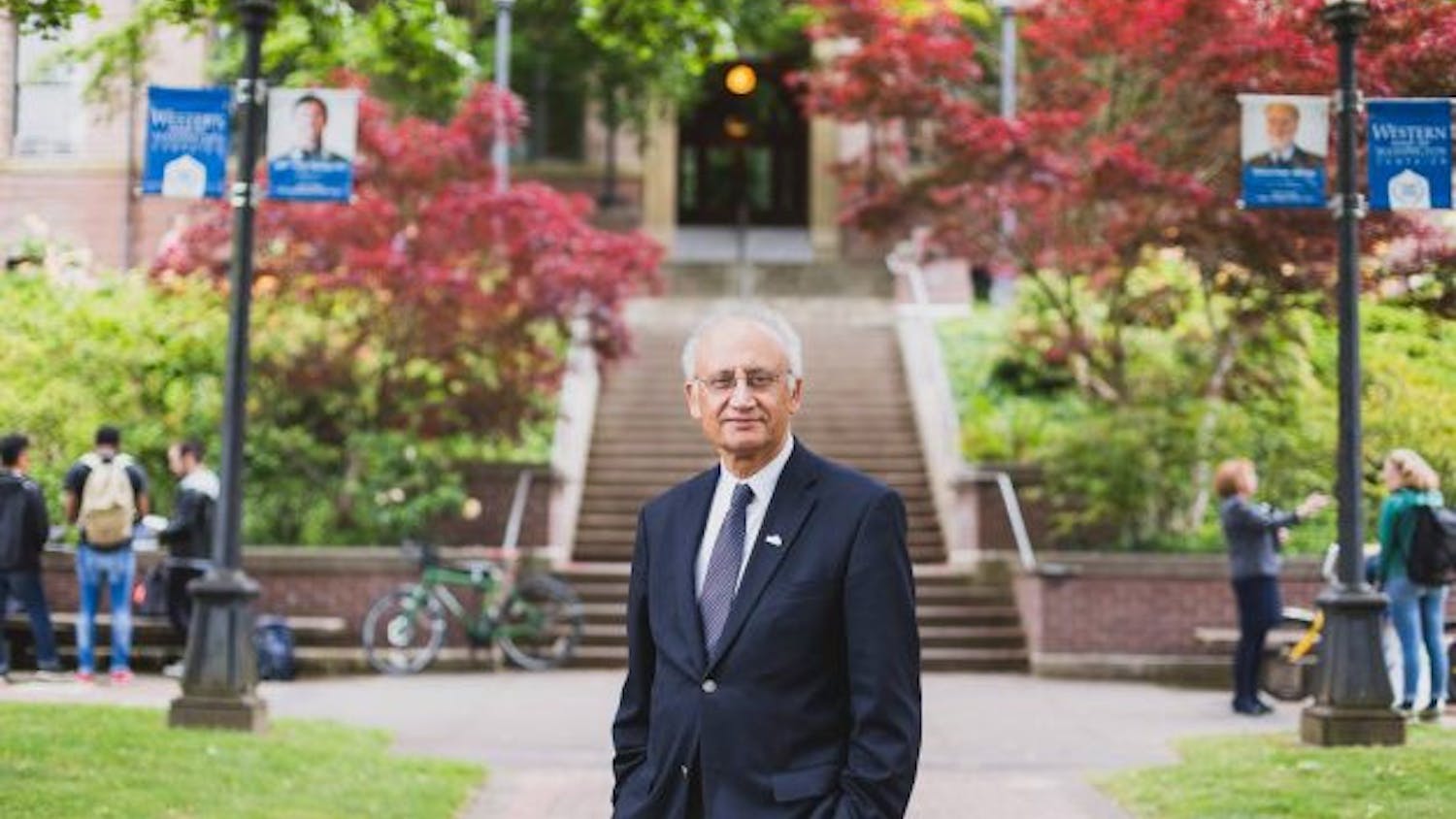
Western Washington University’s Board of Trustees have begun their selection process for the next Student Trustee, a job crucial to having student voices heard by the university.
The position, currently held by second-year graduate student Hunter Stuehm, lends an invaluable real-life student perspective to board meetings, according to Rayne Rambo, the assistant secretary to the Board.
“Some of our trustees are not Western grads so they didn't have that experience and they find that experience so important and valuable for them to be able to bring their expertise to the table and have that apply to Western specifically,” Rambo said.
The Student Trustee performs all the same duties as the rest of the Board, aside from voting on personnel matters. Student Trustees also have more limited terms, where they only serve for one year while regular board members serve for six year terms. All Student Trustees are appointed by the state governor at the final stage of the selection process.
Stuehm finishes his time at the position in June as the only student to serve two terms on the Board, one of many on-the-fly decisions made by the university due to COVID-19 last spring.
Stuehm said he found great value in his position as a student during the early days of the pandemic, where he provided input on how the university could meet the needs of students through basic relief and support.
“I felt very empowered to be able to provide my own perspective as a student, not representing all students, but as a person who is experiencing campus as online and in-person and through hybrid classes,” Stuehm said. “To be able speak my perspectives and give examples and ideas for continued growth and change to improve all students' experiences.”
Stuehm applied for Student Trustee after having past experience as a housing and dining employee as an undergrad for the university, which he said gave him a diverse and informed perspective on campus life. The learning curve that he experienced moving up to a seat on the Board was challenging, but Stuehm said it provided him with a new concept of leadership.
“The focus is on strategic planning and on vision and mission alignment, where we're always talking about like, where does Western go like five, 10 years from now? How does Western change and adapt to meet the needs of the state? How do we change, and what is the purpose and meaning and value of an education at Western?” Stuehm said.
“I've learned so much about what it means, in your decision-making, to consider and learn about stakeholder perspectives and what it means to know your constituencies,” He said.
Rambo emphasized the lifelong connection that Student Trustees have with Western and praised Struehm for his work during a challenging year.
“Hunter’s time has been invaluable and I think that even when he comes off of the board I can still see the trustees reaching out to him,” Rambo said.
Though the Student Trustee position has been a part of Western’s Board for just over 20 years, the job isn’t as prevalent in other schools across the country. According to Butch Oxendine, the executive director of the American Student Government Association, about 60% of schools have a student vote, and that number is much lower among private schools.
Oxendine has seen schools that are adamantly against the idea of having a student vote on the Board. One chair of the Board of Trustees at a private school on the East Coast (that Oxendine preferred to leave anonymous) told him they’d have a student on the Board “When hell freezes over.”
“There are some that don't see students as valuable contributors. They don't want students involved in a lot of the discussions that they see as private,” Oxendine said. “In my opinion, they don't want students involved and knowing a lot of the intimate details, which could be embarrassing.”
Oxendine believes this causes problems for student perspectives to be shared.
“There's the problem. If they don't have a vote, they're not involved in it. All they are is a voice and a voice doesn't make decisions. It just advises,” he said.
As for the applicant pool the Board expects to receive, Rambo said she’d be pleased if up to 10 students applied, as they usually get five or six. Applicants are commonly upper-division or graduate students due to their significant experience with the university, but Rambo encourages any student with an interest in public speaking to apply.
Struehm’s advice for the next trustee is to invest their whole self and time in the position. “This position, from my experience, has the opportunity to be as expansive and all encompassing as you want it to be,” Struehm said.
“Invest the time to build relationships with the other leaders across campus … because your perspectives and ideas will be really important and play an important and critical role in how the board makes its decisions.”
Additional information regarding the student trustee position and the application process can be found here.
Jason Upton is a second-year journalism major and reporter for The Front. He can be reached at jasonupton.westernfront@gmail.com.





